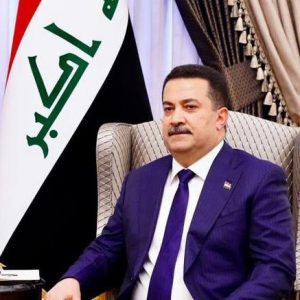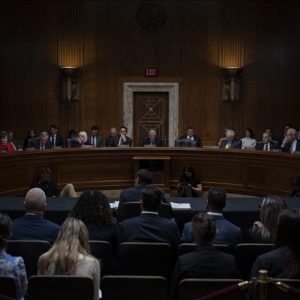Liberation of Indian Occupied Kashmir: Oxford Union releases footage of Kashmir independence
Debate featured Muzzammil Ayyub Thakur, a Kashmiri activist and Prem Shankar Jha, a former media adviser to Indian Prime Minister
Muslim Network TV
LONDON (MNTV) – The Oxford Union, renowned for its tradition of engaging in contentious global discussions, has released the footage of its November 2024 debate titled “This House Believes in an Independent State of Kashmir”.
The event, intended to foster dialogue on one of the world’s most polarizing territorial disputes, drew backlash from Indian authoriteis and media.
The debate featured prominent advocates for Kashmiri independence, including Dr. Muzzammil Ayyub Thakur, a Kashmiri independence activist and leader of the Justice Foundation and the Kashmir Freedom Movement; Professor Zafar Khan, chairman of the Jammu Kashmir Liberation Front (JKLF) diplomatic bureau; and Prem Shankar Jha, a former media adviser to Indian Prime Minister V.P. Singh.
Hardline Hindu nationalist filmmaker Vivek Agnihotri and journalist Aditya Raj Kaul declined invitations to present India’s case, citing the motion as “offensive” and “anti-India.”
During the debate, Dr. Thakur passionately articulated his stance, stating, “The people of Kashmir have been denied their fundamental right to self-determination for decades.”
He emphasized the historical context, asserting, “Since 1947, Kashmir has been a region contested by nuclear-armed neighbors, yet the voices of Kashmiris themselves remain unheard.”
Dr. Thakur who is the founder of the Justice Foundation: Kashmir Institute of International Affairs and a prominent figure in the World Kashmir Freedom Movement further highlighted human rights concerns, noting, “The ongoing militarization and reported human rights violations in the region underscore the urgent need for an independent Kashmir.”
He delivered his arguments with a mixture of legal citations, historical context, and poignant rhetoric.
“Indians would have you believe that their freedom struggle against the British was justified and ours is illegal,” Dr. Thakur stated, challenging the audience to recognize the hypocrisy in denying Kashmir the freedom that India itself fought for.
He continued, “They were a colonized people, and now they’ve become the colonizer.”
Throughout his speech, Dr. Thakur highlighted the severe human rights abuses reported in the region, the controversial legality of the Instrument of Accession signed in 1947, and the international community’s faltering stance on Kashmir.
He cited various UN resolutions that support the right to self-determination, accusing India of violating these international mandates by suppressing Kashmiri voices.
Dr. Thakur criticized the global inconsistency in handling cases of self-determination, “Where does it say anywhere in the United Nations that Security Council resolutions are defunct after seven decades or are time-bound in any way? India has taught us the route to permanent colonization — given enough time, occupation can be legitimized, delayed by decades, and then use the excuse that Security Council resolutions, international law, Geneva conventions anything and everything no longer apply.”
His emotionally charged appeal included a stark depiction of the current conditions in Kashmir, “Hundreds of thousands dead, tens of thousands raped, billions in destruction — this isn’t just about politics; it’s about humanity.”
Thakur passionately defended the Kashmiri resistance as not only a moral right but a legal one, anchored in the principles set forth by the United Nations.
The comments section of the Union’s broadcast mirrored the debate’s intensity, with diverse viewpoints reflecting the global diaspora’s concerns about the future of Kashmir.
Supporters of Dr. Thakur praised his clarity and courage in presenting the Kashmiri case, while critics questioned the feasibility and implications of independence.
A group of Indian students gathered outside the Oxford Union, chanting slogans expressing their disapproval of the platform provided to speakers arguing for right to self-determination to Indian Occupied Kashmir.
Prem Shankar Jha, representing India, emphasized that the complete princely state of Jammu and Kashmir, which acceded to India, should be considered in any discussion about its future, not just the Indian-administered part.
“Independence might seem like a solution but could lead to a more severe form of servitude,” Jha argued.
He distinguished between personal freedoms — control over one’s life and choices — and independence, which pertains to territorial control.
Drawing historical parallels from Moses to the slaves in America, Jha asserted that true freedom is a birthright that transcends geographical boundaries.
The speaker critically evaluated the outcomes of independence in nations born from decolonization and globalization. He cited conflicts in countries like the former Belgian Congo and Rwanda as examples where independence led to tyranny rather than freedom.
Kashmir was a Muslim majority resource-rich and scenic princely state in north India, ruled by an authoritarian Hindu dynasty to whom the British had sold off the state. At partition, its Hindu maharaja refused to honour the public sentiment of Kashmiris who wanted union with Pakistan, the Muslim majority republic created at the time of India’s partition in 1947.
The arbitrary and unpopular accession to India (which many allege was forged) was resisted by local insurgents and surrounding Muslim tribesmen from Pakistan. The insurgency was brutally crushed by the Indian army.
The UN ruled in favour of the Kashmiris’ right to self-determination and ordered a plebiscite to decide the state’s future. Indian occupying forces, however, refused to allow a plebiscite, accusing Pakistan of supporting Kashmiri insurgents or freedom fighters. Brutal tactics by India led to violent suppression of the Kashmiri liberation struggle.
In 2019, India scrapped the state’s special autonomous status and merged it into the Indian union unconstitutionally. While most of Kashmir remains in the grip of Indian occupation, Pakistan also administers a smaller part and China lays claim to part of the Laddakh region. UN resolutions for Kashmir’s right to self-determination have not been implemented, and the fate of Kashmir hangs in limbo as India continues to use force and fear to suppress demands for liberation.







